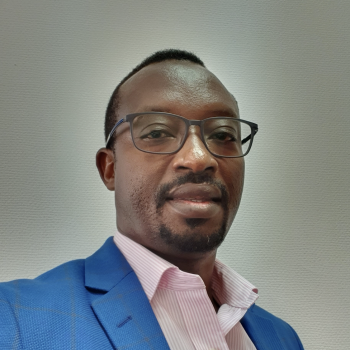Head of Resident Coordinator's Office in Mauritius and Seychelles
What roles does a Resident Coordinator’s Office play in high-income, Small Island Developing States (SIDS), which are extremely vulnerable to climate change and heavily dependent on tourism and global supply? Meet Robert Banamwana, the Head of Resident Coordinator's Office in Mauritius and Seychelles. In response to the severe socio-economic impact of the COVID-19 pandemic, Robert supported the Resident Coordinator to convene 19 UN agencies to elaborate the “UN COVID-19 Socio-Economic Response Plan (SERP)” for Mauritius and the Seychelles. Robert’s role was instrumental in making sure that all relevant UN entities – regardless of whether they had physical presence in the country – were brought in the process to better support the urgent needs of most affected communities, including on Health Services, Social Protection system and Macro-economic response.
Similarly, following the devastating Wakashio Oil Spill in Mauritius in 2020, Robert supported the Resident Coordinator to convene five UN agencies (UNDP, IOM, UNODC, WHO, UNEP) to successfully prepare an emergency funding proposal to support the Government. This enabled the Government to better mitigate the immediate health and environmental consequences of the disaster, and to undertake a national “Disaster Risk Management Capacity Diagnostic” that will help the country be better prepared for future disasters.
Robert is also supporting the Resident Coordinator and UN country team to establish a Development Partners Working Group on Climate and Energy in Mauritius to coordinate and foster synergies between Development Partners in this priority area.


